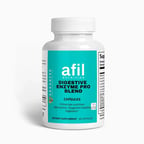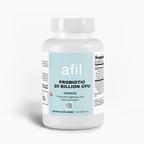Butter
Butter sensitivity may arise from trace lactose, casein, or whey. Avoid it for 8 weeks, try alternatives like coconut oil or ghee, and support digestion with lactase enzymes, probiotics, and turmeric to reduce inflammation.
🧈 What is Butter?
Butter is a dairy product made by churning cream to separate the fat from the buttermilk. It is high in milk fats and often used for cooking, baking, and as a spread.
🤔 Why Do I Have an Intolerance to Butter and Its Components?
Your intolerance to butter may stem from:
- Lactose: Although butter is low in lactose, trace amounts can still trigger symptoms in highly sensitive individuals.
- Casein: The milk protein in butter may irritate the gut or cause inflammation in those sensitive to it.
- Residual Whey: Butter may contain small amounts of whey, which some individuals find hard to digest.
- Added Ingredients: Salted or flavored butter may include additives or preservatives that contribute to sensitivity.
If you tolerate other dairy products, it may be due to differences in processing or lower levels of lactose and proteins in those items.
🛠️ What Can I Do About It?
To manage your sensitivity to butter:
- Avoid butter for 8 weeks: Eliminate it completely from your diet during this period.
- Reintroduce and retest: Gradually reintroduce butter after 8 weeks to see if symptoms persist.
- Choose alternatives: Use non-dairy or clarified butter substitutes.
- Track your symptoms: Maintain a food diary to identify triggers and monitor progress.
💊 Supplements to Support Intolerance to Butter and Inflammation from Dairy
These supplements can help manage symptoms and reduce inflammation:
- Lactase enzyme: Helps digest lactose in dairy products.

- Probiotics: Support a healthy gut microbiome and aid in digestion.

- L-glutamine: Repairs and supports the gut lining, reducing irritation.

- Turmeric (curcumin): A natural anti-inflammatory that eases symptoms.

- Omega-3 fatty acids: Help reduce overall inflammation.
🤔 Why Do I Have an Intolerance to Butter and Not Other Dairy Components?
Your intolerance to butter but not other dairy products can be attributed to its specific composition:
- Residual Lactose: Butter contains small amounts of lactose, which might be enough to trigger symptoms if your lactose sensitivity threshold is very low. Other dairy products like aged cheeses have little to no lactose due to fermentation.
- Casein Proteins: The casein in butter, though minimal compared to milk or cheese, may still irritate sensitive digestive systems. Other dairy products might have a different type or concentration of casein that your body tolerates better.
- Fat Content: Butter is composed primarily of milk fat, and some individuals may find it harder to digest high-fat dairy products. This is less likely to occur with low-fat dairy items.
- Additives in Commercial Butter: Salted or flavored butter may include preservatives or other ingredients that could contribute to sensitivity, which are not present in pure dairy products.
These unique characteristics make butter more likely to cause symptoms compared to other dairy products or components.
🍴 Popular Dishes Involving Butter
- Buttered toast
- Mashed potatoes
- Baked goods like cookies and cakes
- Butter-based sauces
🥥 Alternatives to Butter
- Coconut oil
- Olive oil
- Avocado oil
- Plant-based butter alternatives
- Ghee (clarified butter, if tolerated)
.png?width=100&height=75&name=AFIL%20Logo%20(1).png)